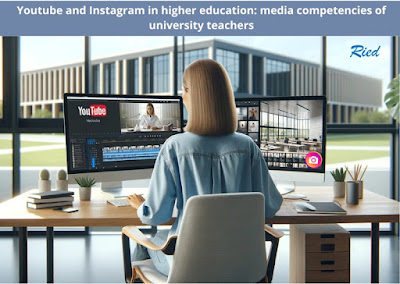Accelerated access to the Internet, technologies and social networks contribute to the development of new educational contexts with significant transformations in teaching and learning. Broadening the conversation about these new scenarios is essential to understand the use of social networks and Edu Communication as a trend for the future.
This study aims to identify and integrate the dimensions of media competencies in domains: skills, attitudes, and knowledge that professors should have to manage the teaching-learning process on YouTube and Instagram social networks.
It employs an exploratory quantitative design, developed between 2021 and 2022, with a sample of 152 professors. Through an instrument validated for students and professors in Latin America, it analyzes the media competencies of: Language, Technology, Interaction Processes, Production and Dissemination Processes, Ideology and Values, and Aesthetics. The instrument is composed of 29 questions that establish domains: skills, attitudes and knowledge required by the professor to manage the teaching-learning process in networks such as YouTube and Instagram.
As a result, it is obtained that there are no significant differences in the domains of knowledge, skills, and attitudes, i.e. university professors show a similar level of media competence on YouTube and Instagram.
Teaching experience and age influence the development of media competence, with a greater integration of technological tools by professors with more experience, while younger professors show a greater disposition towards innovative media approaches such as the use of YouTube and Instagram.
---
How to cite: Andrade-Vargas, L., Portugal, R., Sandoval-Romero, Y., & Labanda-Jumbo, C. (2024). Youtube and Instagram in Higher Education: media competencies of university teachers. [Youtube e Instagram en Educación Superior: competencias mediáticas del docente universitario]. RIED-Revista Iberoamericana de Educación a Distancia, 27(2), pp. 339–356. https://doi.org/10.5944/ried.27.2.39080

